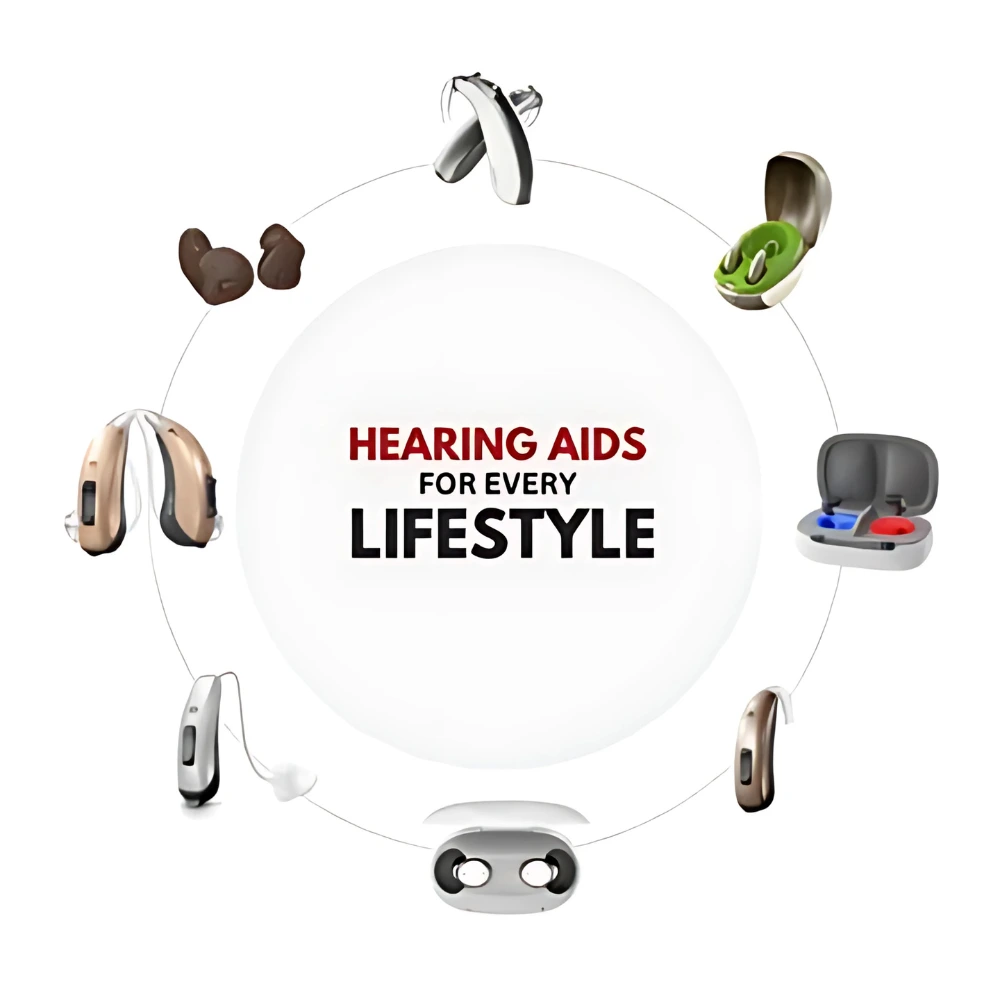Signs Symptoms of Hearing Loss
Home » Hearing Loss » Signs Symptoms of Hearing Loss
Are You Missing Out on Sounds Around You?
Do you feel the sounds around you are muffled or harder to follow than before? Are you constantly increasing the TV volume or avoiding social interactions? This might be some of the initial symptoms of having a hearing issue, indicating the gradual development of hearing loss symptoms that shouldn’t be ignored.
A report from WHO says that over 20% of the global population is affected by some degree of hearing loss, and nearly 60% of childhood hearing loss is preventable. Therefore, understanding the early signs may help to avoid long-lasting outcomes and allow timely intervention for better outcomes in terms of hearing impairment.

Early Warning Signs of Hearing Loss
- Frequently asking people to repeat themselves: If you feel as if you are missing key points of a conversation, ask people to repeat themselves.
- Difficulty hearing in loud places: One of the main indicators of hearing problems is an inability to separate background noise from speech.
- Increasing the volume on the TV or phone: This may have been a behavioral adaptation to mild hearing loss, and it can be worsened if treatment is not sought.
- Difficulty hearing consonants or certain voices: Having difficulty hearing sounds of high frequency, such as 's', 'f', or 'th'.
- Perceiving others as mumbling: This typically reflects a clarity problem due to hearing impairment.
These are some symptoms of hearing loss that need to be diagnosed professionally.
Signs of Hearing Loss in Adults vs Children
| Adults | Children |
|---|---|
| Missing parts of conversations: Adults with hearing loss often miss key words or phrases, especially in group settings. | Delayed speech development: A major red flag in children with early signs of deafness. |
| Withdrawing from social settings: Social isolation can result when individuals struggle to keep up with conversations. | Inattentiveness or behavioral changes: These may be mistaken for learning disabilities but could be due to hearing impairment. |
| Struggling at work due to misheard instructions: Miscommunication can impact job performance and workplace safety. | Poor academic performance: Difficulty following instructions or responding in class is often a sign of hearing difficulty. |
These symptoms of deafness vary by age group, but both warrant immediate evaluation.
How Hearing Loss Affects Daily Life
Hearing loss can have profound consequences across various areas of life, affecting communication, confidence, and safety.
- Personal Relationships: Misunderstood conversations or missed emotional cues can strain relationships.
- Work or Education: Missing instructions or being unable to follow group discussions affects productivity and academic success.
- Mental Health: Isolation, anxiety, and depression are commonly associated with untreated symptoms of deafness.
- Safety: Inability to hear alarms, horns, or emergency signals can put individuals at serious risk.
Is it Temporary or Permanent?
Temporary hearing loss is often caused by reversible issues such as earwax buildup, middle ear infections, or fluid accumulation. These conditions can block sound transmission and typically resolve with medical treatment.
On the other hand, permanent hearing loss is usually linked to damage in the inner ear or auditory nerve. Causes include aging (presbycusis), continuous exposure to loud noises, certain medications, or genetic factors. This form of hearing impairment is often irreversible and may require long-term solutions like hearing aids or cochlear implants.
Distinguishing between temporary and permanent hearing loss symptoms can help determine whether immediate treatment will restore hearing or whether sustained support is needed.
When to See a Hearing Care Professional
- If hearing loss symptoms persist for more than 2 weeks
- If symptoms interfere with work or personal life
- If you notice speech delay or inattention in a child
Early intervention can improve long-term outcomes. Never ignore persistent hearing difficulty.

Don’t Wait — The Sooner You Test, the Better
The longer signs of deafness go untreated, the more difficult they are to reverse. Timely action can slow or even stop the progression of hearing loss.
Learn More About Hearing Health
FAQs
Yes. Sudden hearing loss symptoms can result from viral infections, head trauma, or blood circulation problems. Immediate medical attention is advised.
Not always. Some ear damage symptoms from infections or wax buildup may be reversible, while others, like noise-induced hearing loss may be permanent.
Yes, this condition is called tinnitus and often accompanies symptoms of deafness, especially when caused by loud noise or aging.
If they exhibit signs of hearing problems like speech delay, inattention, or poor school performance, it’s crucial to consult a pediatric audiologist.
Request Consultation


